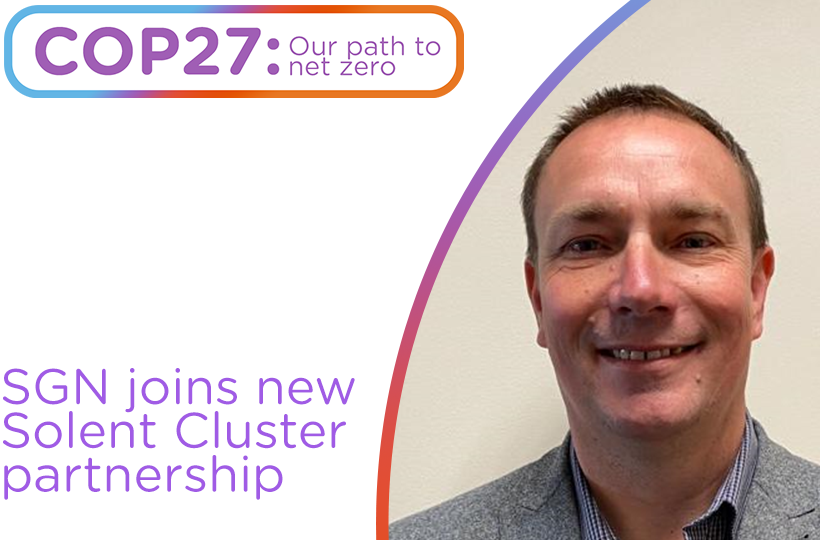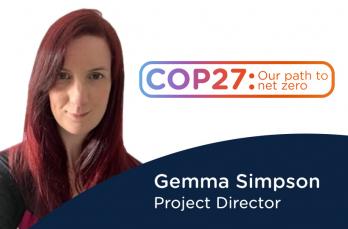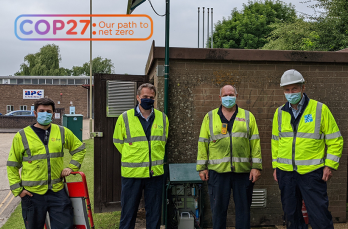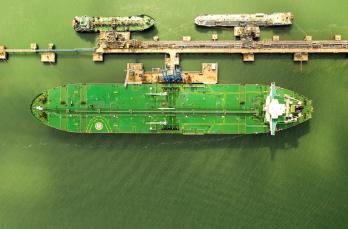
The latest instalment in our COP27 series of articles focuses on our membership of the newly formed Solent Cluster. Our Regional Development Manager Paul Rose, pictured above, attended the launch event to sign the membership charter on the company's behalf.
SGN has announced its membership of The Solent Cluster, the first major decarbonisation initiative to substantially reduce CO2 emissions from industry, transport and households across the Solent and the south coast of England.
The Solent Cluster is a cross-sector collaboration of international organisations, including manufacturers and engineering companies, regional businesses and industries, leading logistics and infrastructure operators and academic institutions, with decades of proven expertise in carbon capture and storage and hydrogen technology.
We signed up as a member at this month’s launch event alongside founding members the Solent Local Enterprise Partnership (LEP), global energy provider ExxonMobil and University of Southampton. Each shared details of their vision for the Solent and how it could secure existing jobs and produce low-carbon fuels for sectors including maritime and aviation, as well as providing energy to heat homes, businesses, and public buildings. This effort could position the Solent at the centre of low carbon fuel production in the UK and make a major contribution to the country’s net zero ambitions by 2050. The project could capture approximately three million metric tonnes of CO2 every year.
Our Regional Development Manager Paul Rose said: “The launch of the Solent Cluster will act as a springboard for regional decarbonisation efforts to support the UK’s ambitions of net zero emissions by 2050.
“We’re proud to be a significant Cluster partner following our 2020 Southampton-based feasibility study alongside Macquarie Green Investment Group, which investigated hydrogen production in the area to decarbonise emission-intense sectors like heavy industry, transport and heating. We believe hydrogen has a keep role to play in our journey to net zero. Since this study in Southampton, we’re now working to deliver a pre-FEED for a 100% hydrogen pipeline to transport locally sourced clean energy to 800,000 nearby homes and businesses.
“The Cluster and our work will help deliver a positive impact to the regional economy and community: a greener place to live and a significant number of new jobs created.”
Anne-Marie Mountifield, Chief Executive of Solent LEP said, “Decarbonisation is at the heart of our economic strategy for the area and the creation of The Solent Cluster will sit alongside our ambition to pioneer approaches to climate change adaptation and decarbonisation, linked to our coastal setting, and establishing real expertise which other regions – nationally and globally – can learn from. The Solent Cluster will provide a platform for the excellent work that is already taking place and the partnership has a unique opportunity to affect real change in energy production and consumption, establishing the Solent and wider region as a leading centre for low carbon investment now and in the future.”
The Solent Cluster could enable organisations to bid for government investment support for projects to decarbonise the Solent region and realise the benefits that can flow to the region’s businesses and communities.
Dr. Lindsay-Marie Armstrong, Associate Professor of Mechanical Engineering at University of Southampton, said: “The Solent is recognised as one of the leading contributors of CO2 emissions with approximately 3.2 million metric tonnes of CO2 emissions released from energy-intensive manufacturing processes every year. To form a decarbonisation cluster that spans the public, private and higher education sectors is a monumental step forward for the region.
“It will introduce sustainable fuels for local transportation, the aviation and the shipping sectors; create low carbon energy to heat homes, businesses and public buildings; and open up new highly skilled jobs opportunities. This can only be achieved by working together as a community, covering all sectors and ultimately working with the same desire to achieve a low carbon economic future for the Solent region.”




